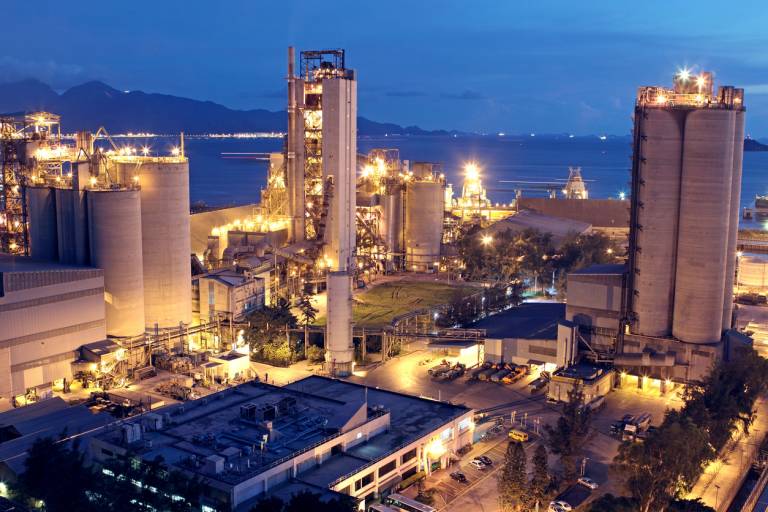UCL spin-out Carbon Re uses AI to help reduce emissions from the world's biggest polluters
A UCL spin-out company, co-founded by experts in the UCL Bartlett School, is using artificial intelligence to help some of the world’s biggest carbon emitters to decarbonise.

14 June 2022
Energy-intensive industries such as cement and steel account for more than 20% of all global carbon emissions. De-carbonising the big polluters is at the forefront of efforts to slow climate heating. But for cement and steel manufacturing, this is a huge challenge.
Researchers in the UCL Bartlett School of Environment, Energy & Resources (BSEER) are rising to the challenge and have developed an advanced artificial intelligence (AI) software platform that is now helping to reduce carbon emissions in manufacturing plants by up to 20%.
““We create a ‘digital twin’ of the manufacturing plant to identify points in the process where large amounts of energy are consumed.”
In 2021, Dr Aidan O’Sullivan (UCL BSEER) and his partners at the University of Cambridge’s Institute for Manufacturing and Canadian AI start-up Element AI, founded a company called Carbon Re, to market the software and help manufacturing plants use it to drastically reduce their emissions.
The spin-out was established with support from UCLB, UCL’s commercialisation company, and a £1 million investment led by the Clean Growth Fund, UCL’s Technology Fund and Cambridge Enterprise. It is the first university spin-out to be jointly funded by both UCL and Cambridge.
The revolutionary software – Delta Zero – uses a form of AI called Deep Reinforcement Learning. This allows engineers to simulate large production plants and identify where processes can be adapted and improved to reduce carbon emissions.
“We create a ‘digital twin’ of the manufacturing plant using historic datasets of its physical and chemical processes,” explains Dr O’Sullivan, who is leading the research. “The software then performs complex analyses to identify points in the process where large amounts of energy are consumed.”
Using this learned experience, the AI system finds solutions tailored to the individual plant. Once implemented, the recommended changes can reduce emissions by up to 20% and associated fuel costs by 8%.
Carbon Re’s team of engineers, researchers, strategists and policy experts is already transforming cement manufacturing and is set to help decarbonise other energy intensive industries, such as steel, in the next two years. At the same time, the improved efficiencies will save the companies millions of pounds through reduced energy consumption.
In addition, the benefits can be seen almost immediately – the analysis can be performed without new hardware or operator training and the recommended adaptations easily incorporated into existing operating schedules.
"At Carbon Re we're translating AI research into gigatonnes of impact on emissions and solving some of the biggest challenges associated with climate change," adds Dr O’Sullivan.
Image credit: iStock/ cozyta
 Close
Close


